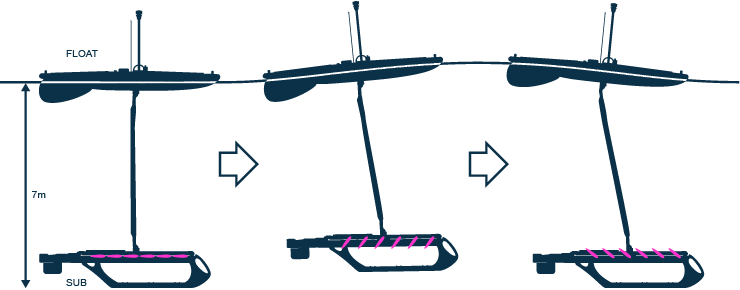Robot Crosses Pacific Ocean For The First Time
Liquid Robotics said that its WaveGlider has become the first autonomous device to cross the pacific Ocean and has set a world record for the longest distance covered by an autonomous vehicle.
The "Papa Mau" Wave Glider traveled 9,000 nautical miles and "weathered gale force storms, fended off sharks, spent more than 365 days at sea, skirted around the Great Barrier Reef, and finally battled and surfed the East Australian Current (EAC) to reach his final destination in Hervey Bay near Bundaberg, Queensland, Australia."
During its journey, the wave-powered glider collected and transmitted more than 4 million data points documenting ocean life. Liquid Robotics said that it is making the data available as open source and is offering a $50,000 prize for the best way how to utilize the data. Among the measurements were more than 1,200 miles of a chlorophyll bloom along the Equatorial Pacific, Liquid Robotics said.
Contact Us for News Tips, Corrections and Feedback
Get Tom's Hardware's best news and in-depth reviews, straight to your inbox.

Wolfgang Gruener is an experienced professional in digital strategy and content, specializing in web strategy, content architecture, user experience, and applying AI in content operations within the insurtech industry. His previous roles include Director, Digital Strategy and Content Experience at American Eagle, Managing Editor at TG Daily, and contributing to publications like Tom's Guide and Tom's Hardware.
-
bitmaiden It's strange that such a "simple" motion generator is not exploited in more instancesReply -
john_doe_anonymous BP, the exclusive oil and gas industry supporter of the PacX Challenge, and Liquid Robotics have established a two-part grand prize that will be awarded to the person(s) whose research “best represents the spirit of exploration and discovery embodied by this journey”.Reply
WTF? -
Marcus52 bitmaidenIt's strange that such a "simple" motion generator is not exploited in more instancesReply
Come up with some specific plans about how to do whatever you are thinking could be done and submit them; maybe you'll win that $50K. :)
-
COLGeek Similar technology is being used in small projects around the world to generate electricity from wave movement. This is very clever work. Good job!!!Reply -
WhyFi Marcus52Come up with some specific plans about how to do whatever you are thinking could be done and submit them; maybe you'll win that $50K.Reply
The subject of the contest is the creative usage of the 4 million data points collected w/r/t ocean life, not the generator mechanism.
